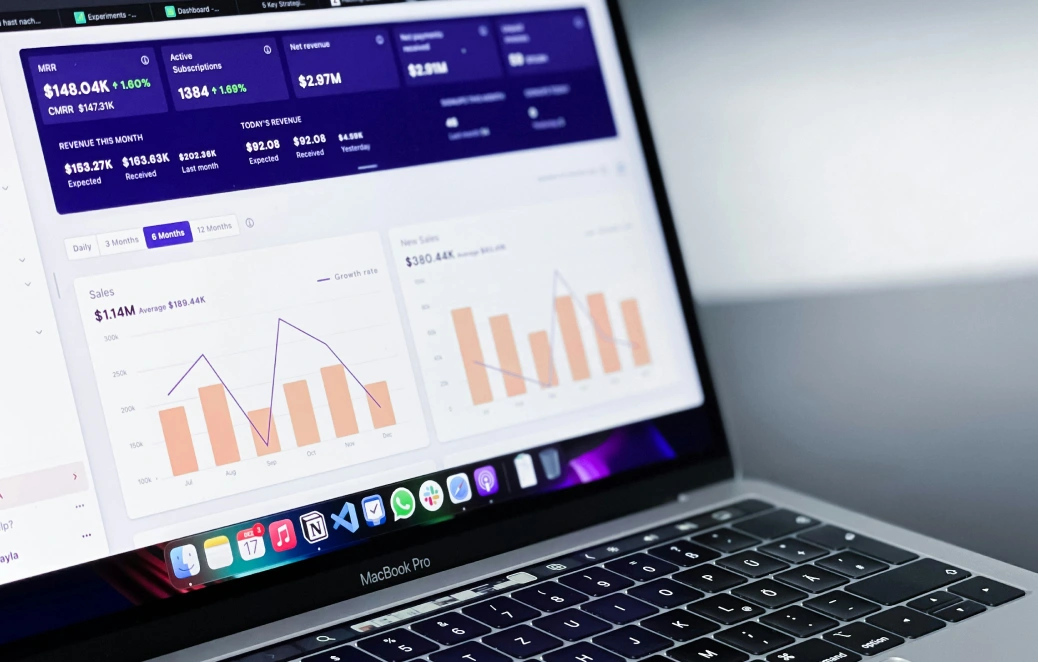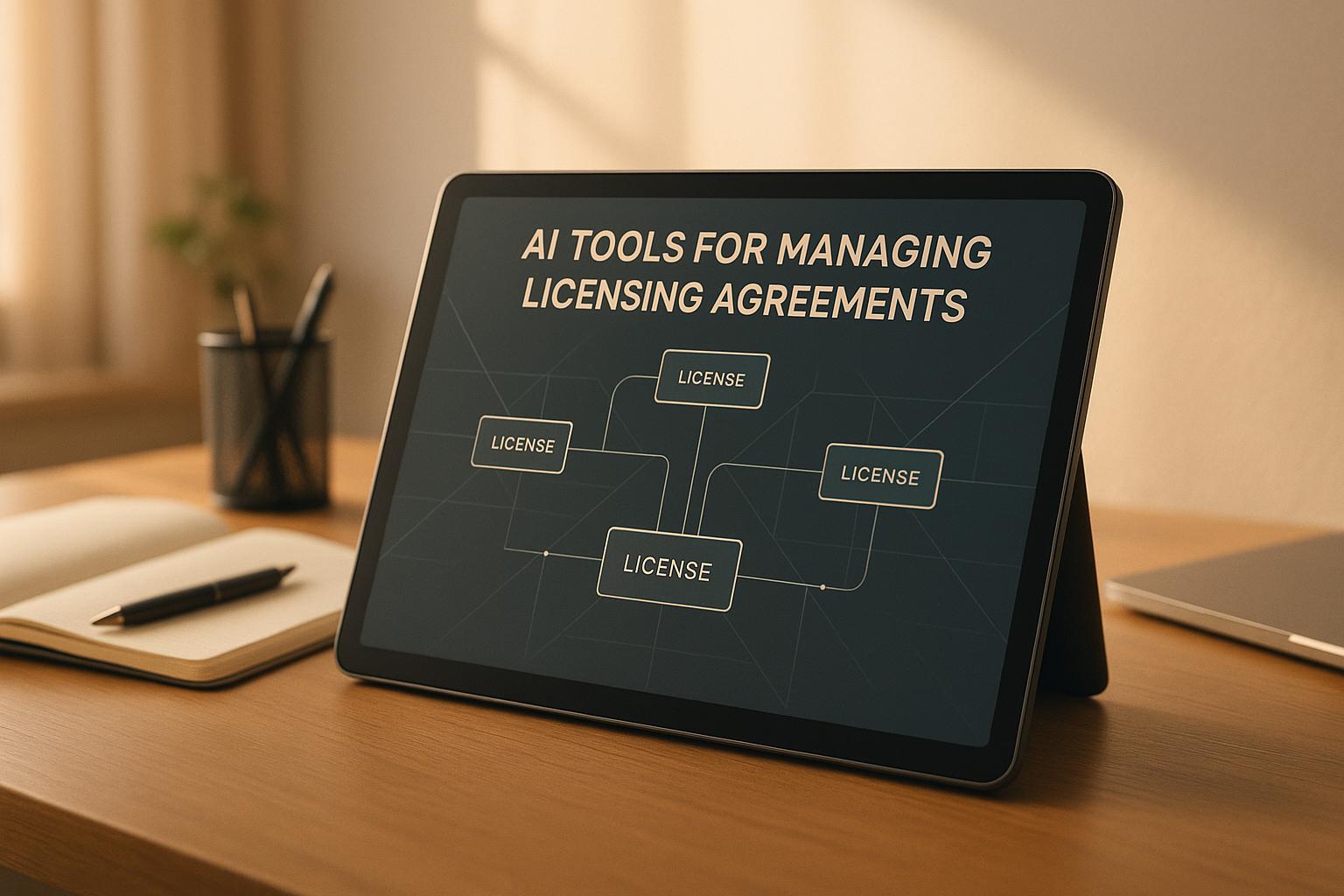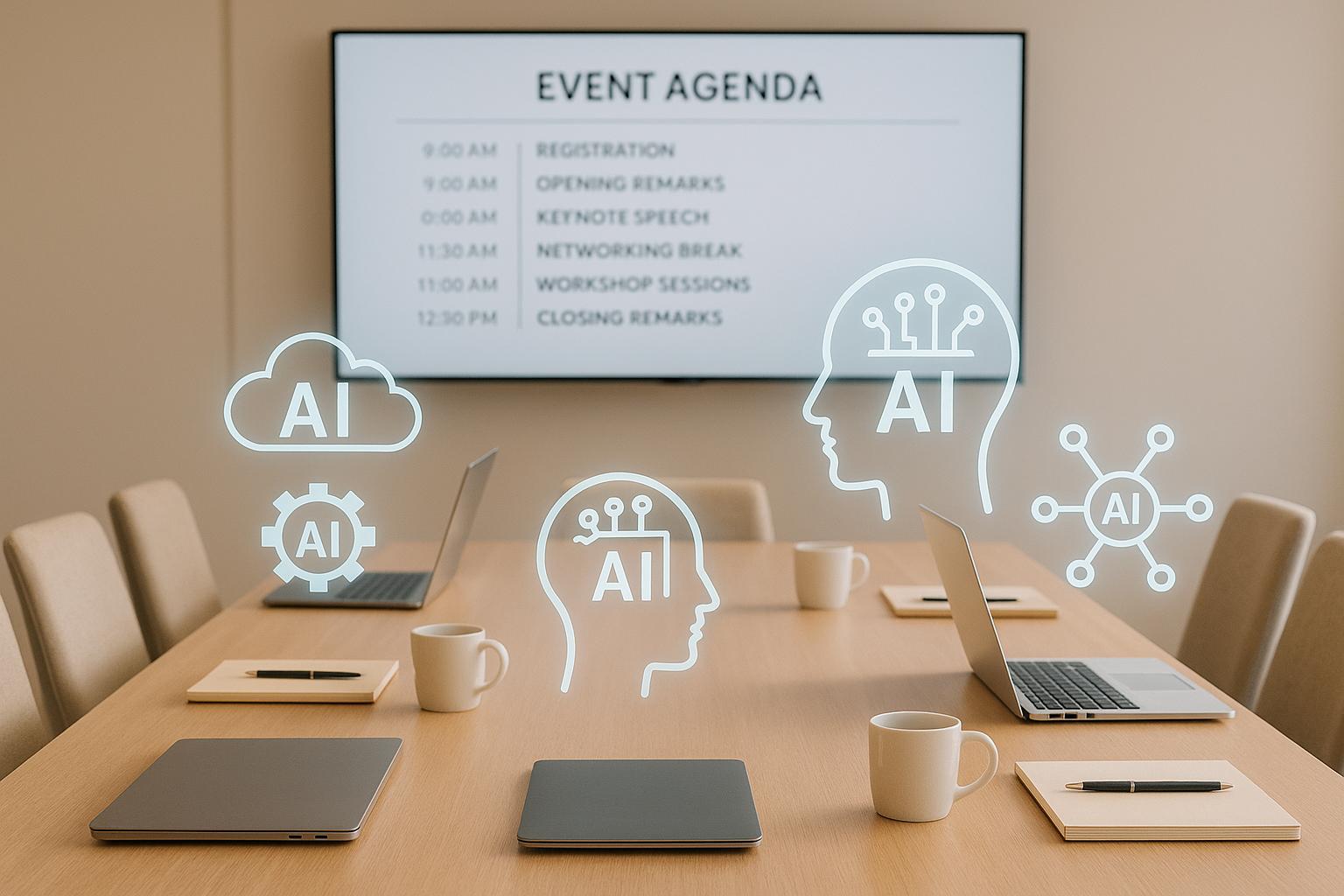Questions to Ask AV Equipment Vendors

Chief Executive Officer

When planning an event, choosing the right AV vendor is critical to avoid technical issues and ensure a professional experience. Here’s a quick guide to key questions you should ask vendors before making a decision:
- Experience: Can they handle events of your size and type? Ask for case studies or references from similar events.
- On-Site Preparation: Do they conduct equipment tests at the venue? What backup equipment and contingency plans do they have?
- Technician Expertise: Are their technicians certified, and how many will be assigned to your event?
- Equipment Details: Can they provide specific equipment specs, including brand, model, and maintenance history?
- Venue Compatibility: How do they address unique venue challenges like acoustics and power limitations?
- Connectivity: What’s their plan for internet and streaming support, including backups?
- Customization: Can they tailor AV setups to match your event’s theme or goals?
- On-Site Support: How many technicians will be available during the event, and how do they handle real-time issues?
- Additional Services: Do they offer extras like live streaming, speaker support, or post-event analytics?
- Post-Event Cleanup: How do they manage equipment breakdown and ensure proper site cleanup?
These questions will help you evaluate vendors’ reliability, technical skills, and ability to meet your event’s specific needs. A good AV partner ensures smooth execution and a positive impression on your audience.
Every inside strategy you need to select the right AV supplier
Key Questions to Check Vendor Reliability
When choosing an AV vendor, the first step is ensuring they can handle the pressure and deliver consistently. Asking the right questions upfront can save you from unexpected issues on event day. Here are some key areas to focus on to evaluate their technical expertise and service compatibility.
What is your experience with events of this scale and type?
Experience isn’t just about having the latest equipment; it’s about knowing how to use it effectively for your specific needs. Ask for case studies that outline the size of the events they’ve handled, the types of venues they’ve worked in, and the challenges they’ve overcome. It’s also crucial to confirm they’ve managed events similar to yours. For instance, a corporate seminar will have vastly different requirements compared to a music festival or a trade show.
For example, medical conferences demand crystal-clear audio for presentations, while product launches might require dramatic lighting and engaging multimedia displays. Avoid generic answers like, “We handle all kinds of events.” Instead, request references from recent clients who can vouch for their performance in similar scenarios.
Do you conduct on-site tests and have backup equipment?
No one wants technical glitches ruining their event, which is why preparation is non-negotiable. A reliable vendor should conduct thorough equipment tests at your venue before the event, simulating real conditions to identify potential issues.
Ask about their backup equipment policy. Professional vendors always have duplicate gear for critical items like microphones, projectors, and sound systems. They should also have contingency plans for problems like internet outages, power failures, or equipment breakdowns. Don’t forget to inquire about their response time for resolving technical issues during the event. Are technicians strategically placed for quick action? Do they have a clear protocol for escalating problems? These details can make all the difference in a smooth execution.
What certifications or training do your technicians have?
The expertise of the technicians running your event is just as important as the equipment itself. Ask about the certifications they hold, such as InfoComm CTS (Certified Technology Specialist) or training from manufacturers like Shure, QSC, or Barco. Continuous education is critical in this field, as technology evolves rapidly, and technicians need to stay up-to-date to troubleshoot effectively.
You should also confirm the technician-to-event ratio. For complex setups, a single technician won’t cut it. Professional vendors typically assign multiple certified technicians based on the complexity of the event, ensuring quick and efficient problem resolution.
For example, Corporate Optics ensures all their technicians hold current industry certifications and regularly train on the latest AV technologies. Their expertise spans corporate, sporting, and government events, providing the technical know-how needed for flawless execution.
Checking Technical Capabilities and Equipment
When planning an event, it's crucial to dive into the details of your AV vendor's equipment, its compatibility with the venue, and their connectivity solutions. This careful scrutiny helps avoid unexpected issues and ensures the event runs without a hitch. It's not just about getting high-quality gear - it's about working with a vendor who truly understands the specific needs of your event.
Can you provide detailed equipment specifications?
To evaluate a vendor's technical capabilities, ask for detailed specifications for every piece of equipment they plan to use. Avoid vague terms like "professional-grade equipment" and request precise details. For instance:
- Sound systems: Ask about wattage, frequency response, and coverage patterns.
- Projectors: Inquire about lumens output, resolution, and throw distances.
- Lighting: Request details on color temperature ranges, beam angles, and dimming capabilities.
Request a complete list that includes brand names, model numbers, and technical details. This allows you to confirm that their equipment aligns with your event's requirements. For example, if your event is in a large, brightly lit venue, ensure the projectors are bright enough to maintain clarity for all attendees.
Additionally, ask about the age of the equipment, its maintenance history, and any recent service records. This gives you confidence in the reliability of the gear they’ll be providing.
How do you handle specific venue requirements?
Every venue comes with its own challenges, such as unique acoustics, power limitations, and structural constraints. A competent vendor should conduct a thorough site visit before suggesting solutions. They should evaluate factors like ceiling heights for rigging, power distribution availability, and restrictions on equipment placement.
Acoustics are a key consideration. For instance, a historic building with high ceilings and hard surfaces will require a different speaker setup than a modern venue with carpeted floors and acoustic panels. Ask how they plan to address your venue's specific acoustic challenges and whether they will conduct sound tests before the event.
Don’t overlook power requirements. Ensure the vendor evaluates the venue's power capacity and identifies potential interference sources, such as nearby wireless networks or cell towers, which could disrupt equipment like wireless microphones. A thorough plan for overcoming these challenges is a sign of a skilled and prepared vendor.
What is your plan for internet and connectivity support?
Reliable internet connectivity is essential for many events, whether it's for live streaming, interactive presentations, or attendee Wi‑Fi. Your vendor should have a clear strategy for managing connectivity.
Ask about their backup solutions, such as alternate cabling or secondary connections, to prevent disruptions. It's also important to confirm that they understand the varying bandwidth needs of different applications. For example, a simple presentation might require minimal bandwidth, while high-definition live streaming demands much more.
For hybrid events, where virtual participation is critical, ensure the vendor has experience with streaming platforms. They should also have plans for network segmentation, keeping essential event systems separate from general attendee Wi‑Fi. Confirm that backup equipment and connectivity solutions are part of their contingency plans to ensure the event continues smoothly, even if unexpected issues arise.
sbb-itb-ae35a94
Matching Services to Your Event Goals
Your AV vendor should provide solutions that align perfectly with your event’s unique objectives. The right partner doesn’t just offer a cookie-cutter approach - they adapt their services to fit your vision. Whether your goal is to strengthen your brand, create unforgettable experiences, or achieve specific business outcomes, their offerings should reflect your needs. Here are some key questions to help you determine how well a vendor can tailor their services to meet your goals.
Can you customize AV solutions for our event theme and goals?
Your AV setup should embody your event’s purpose and theme. When speaking with vendors, ask how they handle customization and whether they can adjust their standard packages to match your specific requirements.
For example, can they incorporate your brand’s colors, logos, and overall theme into the setup? This could involve syncing LED lighting with your color scheme, designing a stage that reflects your brand identity, or using digital graphics to support your message.
Consistency in theme is crucial. For a product launch with a futuristic vibe, the vendor might propose cutting-edge lighting effects, sleek stage designs, and advanced display technologies to bring the concept to life. On the other hand, a corporate event may call for more refined lighting and classic staging to highlight professionalism and reliability.
Ask for examples of their past work - photos, videos, or case studies that illustrate how they’ve turned abstract ideas into tangible AV experiences. Also, find out if they provide tools like mockups, 3D renderings, or virtual walkthroughs to give you a clear picture of the final setup before the event. These steps can help ensure the outcome aligns with your vision.
Do you provide on-site technical support during the event?
Customizing the tech is only part of the equation - having real-time support during the event is just as important. Even the best-laid plans can go awry if technical issues arise, so it’s essential to have skilled technicians on hand to manage equipment, troubleshoot problems, and make adjustments in real time.
Ask vendors how many technicians they’ll assign to your event and about their expertise. While a small meeting might only need one technician, larger events often require specialists for audio, lighting, video, or streaming operations. Make sure the team is experienced enough to handle unexpected challenges.
You’ll also want to ensure they have backup equipment and can quickly switch systems if something goes wrong during a live presentation. Find out how they communicate during the event - professional teams often use headsets or similar tools to coordinate seamlessly with each other and the event organizers.
A proactive approach is key. Technicians should monitor audio levels, lighting cues, and equipment performance throughout the event to catch and resolve issues before they affect the audience.
What additional services do you offer?
Today’s events often demand more than just basic AV support. A vendor offering a range of additional services can simplify coordination and elevate your event.
For instance, speaker support can be a game-changer for high-profile events. This might include teleprompter operation, wireless microphone management, or technical coaching for speakers who aren’t familiar with AV equipment. Some vendors even provide green rooms with AV testing setups, allowing speakers to rehearse and get comfortable before going on stage.
Live streaming and hybrid event capabilities have become almost essential. Ask about the vendor’s experience with streaming platforms, multi-camera setups, and interactive tools to engage virtual attendees. Make sure they can deliver high-quality streams with reliable backup systems and on-the-spot technical support.
Some vendors go a step further by offering post-event analytics. They can provide reports on attendance, engagement, and technical performance, helping you measure ROI and plan better for future events.
You might also want to explore audience engagement tools, like interactive polling systems, event-specific mobile apps, or gamification features. These tools can add a dynamic element to your event and keep attendees actively involved.
Ultimately, look for a vendor that can integrate these extras into your overall event strategy. A one-stop shop for multiple services can simplify planning and ensure a smoother, more impactful experience for everyone involved.
Post-Event Support and Analytics
Wrapping up an event smoothly is just as critical as its setup. A well-organized breakdown process not only protects your venue but also makes future setups more efficient. Taking care of equipment disassembly and cleanup properly ensures safety and saves time for the next event.
How do you manage equipment breakdown and site cleanup?
Before diving into cleanup, it's essential to ensure your vendor adheres to safe power-down procedures. This includes shutting down and unplugging equipment according to the manufacturer's guidelines. Additionally, meticulous cable labeling is a must - it simplifies reassembly and reduces the chances of errors during the next setup.
For instance, companies like Corporate Optics prioritize these best practices to ensure a hassle-free post-event wrap-up.
Conclusion: Getting the Right AV Vendor for Your Event
The success of your event often hinges on choosing the right AV vendor. Technical hiccups can tarnish your reputation and leave a lasting negative impression on attendees.
To ensure your vendor is up to the task, ask specific questions about their experience, technical expertise, familiarity with the venue, and the range of support services they provide. This will help you gauge their ability to handle both routine requirements and unexpected challenges.
Vendors with a proven track record in corporate events are particularly valuable. Their experience often translates into smoother operations and quick problem resolution when issues arise.
Equally important is the support your vendor provides throughout the event lifecycle. The best vendors go beyond simply supplying equipment - they offer setup assistance, live event support, and post-event services like analytics and debriefs. These added services not only help you measure the event's success but also provide actionable insights for planning future events. Companies such as Corporate Optics illustrate this approach by offering comprehensive solutions, including audiovisual design and post-event analytics, ensuring a seamless experience across various event types.
Budget transparency is another critical factor. Reputable vendors provide clear, itemized estimates and are open to discussing cost-saving options without sacrificing quality. This level of transparency helps you avoid unexpected expenses and make smarter decisions about allocating your budget.
Vendors familiar with your chosen venue bring an added advantage. Their understanding of the location’s specific acoustics, power setups, and logistical details can help prevent last-minute surprises and streamline the setup process.
As hybrid and virtual events become more common, your vendor must also be equipped to handle live streaming, remote participation, and dependable connectivity. The ability to seamlessly integrate these elements is now a must-have in the evolving event landscape. A skilled vendor with the right technical know-how and professionalism can ensure your event runs flawlessly, whether in person, online, or both.
FAQs
What warning signs should I look for when choosing an AV equipment vendor?
When choosing an AV equipment vendor, keep an eye out for warning signs like poor communication, lack of transparency, or inconsistent service quality. Vendors who can’t provide clear documentation, detailed proposals, or realistic timelines might not be dependable. Similarly, negative reviews, a tarnished reputation, or frequent complaints about hidden fees are all red flags to consider.
Be wary of vendors who make big promises but fail to deliver, send unprepared or mismatched crews, or don’t fulfill their contractual commitments. These issues can seriously impact the success of your event. Opt for a vendor who consistently shows professionalism, dependability, and a proven ability to deliver smooth and effective AV solutions.
How can I make sure the AV setup fits my event's theme and objectives?
To make sure your AV setup matches your event's theme and goals, begin by pinpointing the purpose of your event and the vibe you want to create. Share this vision with your AV provider so they can suggest the right equipment, visuals, lighting, and sound to align with your message and branding.
Collaborate closely with the vendor to tailor the setup to your needs, and always test everything in advance to sidestep any technical hiccups. Clearly communicate your objectives and share examples or inspiration to illustrate the look and feel you're aiming for. This teamwork will help deliver a seamless and memorable experience for your audience.
What should I look for in an AV vendor's post-event support and analytics services?
When evaluating an AV vendor's post-event support and analytics, it's crucial to focus on their ability to deliver detailed post-event reports. These reports should cover key metrics like attendance, audience engagement, and ROI - giving you the tools to measure the event's success and pinpoint areas that could be improved.
Key features to look out for include automated feedback collection through surveys and real-time analytics that monitor attendee behavior during the event. These tools not only simplify performance analysis but also provide insights that can guide more effective planning for future events. Strong post-event support ensures you can base your decisions on solid data, helping you refine and improve your event strategies over time.
Related Blog Posts









